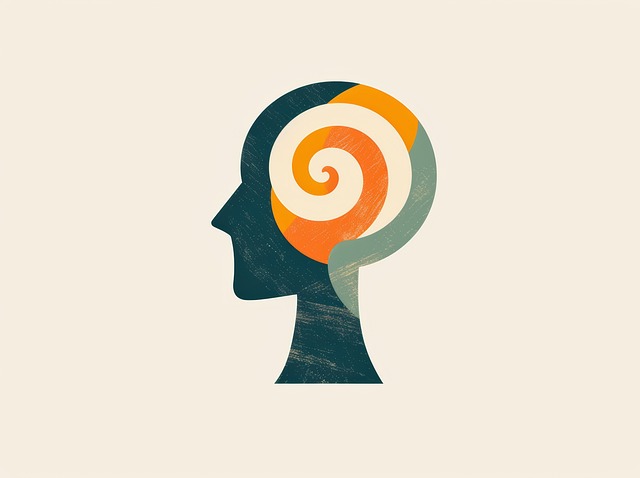Broomfield Gender-Affirming Care Therapy offers a holistic approach to mental wellness by teaching clients powerful coping skills tailored to their unique needs. Through mindfulness, relaxation, crisis intervention, and resilience-building techniques, this therapy equips individuals with tools to manage stress, anxiety, and trauma. By acknowledging the impact of societal factors like gender norms and stigma, Broomfield's innovative model goes beyond traditional coping, promoting cultural sensitivity and social skills training for enhanced emotional regulation and a sense of belonging.
Coping skills development is a crucial aspect of holistic mental health care, especially within the context of Broomfield Gender-Affirming Care Therapy. This therapeutic approach prioritizes understanding and nurturing individuals’ unique coping mechanisms to enhance their overall well-being. The article explores the significance of these skills in therapy, presents the comprehensive Broomfield model, and offers practical strategies for individuals seeking to build resilience and navigate life’s challenges effectively. Discover how these techniques can revolutionize your personal growth journey.
- Understanding Coping Skills and Their Significance in Therapy
- The Broomfield Gender-Affirming Care Approach: A Holistic Framework
- Practical Strategies for Developing Effective Coping Skills
Understanding Coping Skills and Their Significance in Therapy

Coping skills are essential tools in therapy, offering individuals effective strategies to navigate and manage life’s challenges. These skills empower people to face difficult situations with resilience, ensuring they can maintain their mental health and well-being. In the context of Broomfield Gender-Affirming Care Therapy, understanding and developing coping mechanisms is a cornerstone of the therapeutic process. This approach recognizes that each individual has unique experiences and needs when facing stress, anxiety, or trauma.
By teaching clients various coping skills, therapists can provide them with a robust toolkit to address their mental health concerns. This may include Stress Reduction Methods, such as mindfulness techniques and relaxation exercises, which have been proven beneficial in calming the mind and body. Crisis Intervention Guidance is also crucial, offering short-term strategies to manage intense emotions during challenging times. Additionally, fostering Mind Over Matter principles encourages clients to challenge negative thoughts and replace them with positive affirmations, a powerful tool for building mental fortitude.
The Broomfield Gender-Affirming Care Approach: A Holistic Framework

The Broomfield Gender-Affirming Care Approach offers a comprehensive framework for supporting individuals in their mental wellness journey, with a particular focus on affirming identities and reducing barriers faced by marginalized communities. This holistic therapy model goes beyond traditional coping skills development by acknowledging that mental illness experiences are influenced by societal factors like gender norms and stigma. By prioritizing resilience building, this approach equips clients with the tools to navigate challenges while fostering self-acceptance.
Broomfield Gender-Affirming Care Therapy integrates various therapeutic techniques, including mental wellness coaching programs, to create a supportive environment. Through these efforts, individuals can challenge societal expectations, reduce the impact of mental illness stigma, and cultivate coping strategies tailored to their unique experiences. The holistic framework encourages self-expression, promotes positive identity formation, and enables clients to build resilience in a safe, inclusive space.
Practical Strategies for Developing Effective Coping Skills

Developing effective coping skills is a vital component of maintaining and enhancing mental wellness. One proven approach, backed by Broomfield Gender-Affirming Care Therapy, emphasizes practical strategies tailored to individual needs. This therapy encourages clients to identify healthy outlets for managing stress, such as engaging in physical activities or adopting mindfulness practices, which have been shown to reduce anxiety and promote emotional regulation. By integrating these techniques into daily routines, individuals can build resilience and foster a greater sense of control over their emotional well-being.
Furthermore, cultural sensitivity in mental healthcare practice plays a significant role in coping skills development. Recognizing the impact of cultural background on one’s coping mechanisms, therapists can offer tailored support that respects diverse perspectives and beliefs. Social skills training is another effective tool; learning to communicate effectively, assert boundaries, and build supportive relationships enhances an individual’s ability to navigate challenging situations and fosters a sense of belonging, all of which contribute to overall mental wellness.
Coping skills development is a vital component of holistic mental health care, as highlighted by the Broomfield Gender-Affirming Care Therapy approach. By understanding and practicing effective coping strategies, individuals can navigate life’s challenges with greater resilience. This article has explored various techniques, from cognitive reframing to mindfulness practices, offering practical tools to enhance one’s ability to cope. Embracing these skills not only supports individual growth but also fosters a sense of empowerment, enabling folks to thrive in today’s complex world.














